Karna or Radheya
His eyes glistened with unshed tears of joyous gratitude. The simple but beautiful flower-bedecked chariot stood in the small courtyard, and his father was holding the reins of two graceful brown horses yoked to the chariot. The old man’s eyes were filled with anticipation, hoping to see the surprised look on his son’s face.
His mother was already shedding tears of happiness when she saw him walk out of their humble home toward her.
His kavacha-kundala shines in the sunlight, and his pastel green dhoti brings out the colour of his eyes. He is a sight for sore eyes, my handsome son! I’m so glad we were there to receive him when he floated his way to us in the river on this very day, 16 years ago.
Radheya ran to his parents, fell at their feet, and embraced them joyfully.
“You needn’t have done this. Your love and blessings are ample for me.”
“We are creating memories for ourselves, my son,” his father replied.
Smiling, Radheya took the reins from his father and in one graceful move, sprang elegantly onto the chariot and took a turn around the courtyard as his parents watched him proudly. He could handle a chariot with elan.
Radheya then took his parents for a ride around their town, his friends and extended family cheering him on. His kind, helpful personality, ever-smiling face, and muscular good looks made him a favourite teenager in the community.
When the three of them returned home, he sat his parents down on the couch. He then sat down at their feet and said, “I need to speak to both of you.”
His father replied, pride oozing from his voice, “Ask me anything, son, and it’s yours.”
His mother continued, “You are the love and light of our lives. We cannot thank God enough for you. Tell us what you want and it shall be yours.”
She hesitated before adding, “Of course, provided it is within our means. You know that already, don’t you?” She smiled, cupping his face in her palms.
Radheya smiled, “I am named after you, mother, and you have taught me love, kindness, compassion, and discipline. You know I will not ask you for anything you cannot give.”
“You should definitely know that, Radha,” his father jokingly admonished his wife. The three of them laughed together.
“Tell us what is on your mind.” His father, Adhiratha, finished.
“I’m not going to beat around the bush,” said Radheya. Yet, he hesitated, wondering how to put his thoughts into words.
His parents lost their jovial mood when they saw anxiety and uncertainty creasing their beloved son’s face.
“Is everything okay? Are you in trouble?” His mother asked.
“No! No! I’m completely fine.” He quickly reassured both of them. “It’s just that what I’m going to tell you might disappoint you.”
They heaved a sigh of relief, and the smiles came back right on. “You can never disappoint us, Radheya. Go on, share your thoughts with us,” his father prodded gently.
“I love the chariot you gifted me. But my calling is not to be a charioteer like you, father.”
“What do you want to do then, my son?” Adhiratha asked.
His mother stiffened perceptibly. She sensed that the dreaded moment, the moment she had been avoiding for the last 16 years, was drawing near. She sensed it was time for her son to know the truth. His voice broke into her thoughts.
“I don’t want to be a charioteer, Father. I don’t seem to be drawn to it at all. I’m happy, of course. But I feel it’s not my purpose. I don’t feel the rush of adrenaline, the excitement of a racing heart when I’m driving a chariot. But I feel all that and more when I see a warrior with a bow and arrow, when I see a marksman take aim and shoot his target. I want to be a warrior, one who wields a bow and arrow.”
Radheya came out of the trance that he always got into when thinking about archery to find his parents’ faces wet with tears. He was appalled that he made them cry.
“No! No! Father! Mother! I will happily give up my desire for you. I just said what I felt because I wanted to share it with you.”
Radha got up, gently lifted her son from the ground where he was sitting at their feet, and said, “Don’t worry, my dear son. You do not bring on these tears. They have been accumulating in our hearts and minds for many years. We both knew the dam of sadness would burst one day. That day is today.”
He was perplexed. “I don’t understand, mother. What sadness were you hiding? Why didn’t you think I was worthy enough to share it? Couldn’t I have helped lessen the burden?”
His father turned to him and said, “It is time for you to know the truth. You are our son, and yet you are not.”
Radheya found himself falling into a pool of confusing and chaotic thoughts. His heart raced with fear and apprehension.
“What are you saying?” He saw that his parents were hesitating. “Please tell me more before I lose my mind.”
His mother took the lead. “You promise me you won’t hate us?”
“Mother, I don’t care if you committed murder. I am and will always love you both. I can never hate you after being at the receiving end of your unending love all my life. Please tell me more.”
They exchanged looks, and his father continued, “We found you in a basket floating down the River Ganga. I was bathing there, and suddenly a basket touched my body. I looked inside to find one of the most beautiful babies I had ever seen, resplendently dressed with a shining kavacha-kundala. The first name that came to my mind when I saw the radiance emanating from you was Karna.”
“I don’t know how long you had been there on the river. But you had a smile on your face, a bewitching smile that told me to pick you up and take you home. I couldn’t leave you there. I couldn’t bear to let you drift away from me. So, I brought you home, and my dear, beloved wife, Radha, also fell in love with you at first sight. We knew our prayers for a child were answered by the gods, and we raised you as our own son. You are our son! So what if we didn’t give birth to you!”
His mother continued, “My love for you was so obvious that people around started calling you Radheya, and the name that your father thought of first, Karna, was relegated to the background. I was hoping that you would always be Radheya. I now realise the futility of that hope, when you said your heart was in archery. You must be a Kshatriya by birth. That is why your heartstrings pull you towards being a Kshatriya, not to mention the rich jewellery that we found in the basket.”
Radheya went inside the house and came out with a bundle made of a splendid silk scarf. She opened the bundle to expose a large amount of glittering jewellery.
“This was the scarf wrapped around you and the jewellery left in your basket when we found you,” she said.
The silence that followed was deafening. He stared at the jewellery with a blank, confused expression. Radha’s heart fluttered in fear.
Has he already begun to hate me? Oh God, please take me away before I realise how much he hates me.
But Radheya’s thoughts were not at all what his mother feared. They were something else altogether.
I’m an abandoned child? My mother left me? Do mothers do that?
Dark, maddening thoughts filled his body, mind, and soul.
Why would she do it? Was I born at an inauspicious time? Was I not good enough for her? And what if these good people hadn’t found me? I would’ve been overthrown by the eddy currents of the River Ganga further down and drowned. Did my mother leave me to die? Why? Oh, why did she do it?
He was falling rapidly into an abyss of self-loathing. Darkness was closing in on him. He was suffocating. The love and concern on his adopted parents’ faces were the only light that prevented him from drowning in the black mire.
Adopted! Oh, dear! How quickly the word came to his mind! And how he hated it! His mother hugged him. Her love permeated through his body, and he felt warm. The black abyss that threatened to drown him seemed to recede.
Karna Seeks a Teacher
I have to fight this feeling of desolation from not knowing who I am! I have to overcome the pain of knowing that my mother abandoned me! I have to shift my focus! To become a warrior will now be my primary purpose!
He hugged his parents and said, “I owe you my life. I would’ve been dead if it were not for you. Now I need your approval to follow my heart’s desire.”
Adhiratha and Radha happily gave their blessings, and he left home in search of a teacher. He approached Guru Dronacharya, the revered teacher of the Kauravas and Pandavas.
“I am the guru of the Kuru clan. How dare you think I will stoop down to teach you, a sutputra?” He shouted, his arrogance and vanity turning his face dark and ugly.
“How can a teacher refuse to teach any student who wishes to learn?” Radheya countered, his anger matching that of Dronacharya.
“You dare question my stand? Me? The son of the wise Sage Bharadwaja and a direct descendant of Sage Angirasa? You think you are wiser than I and that you can teach me the rights and wrongs of life?” The guru hollered, his eyes livid red.
Poor Radheya was pushed to a corner. He left the guru’s ashram, dejected and sad. But he didn’t give up. He approached many other teachers in Hastinapur, asking them to teach him archery. But they all refused just as Guru Drona did.
“Why do you want to go against your family profession?”
“Learn to be a charioteer.”
“Don’t try to climb above your station!”
These were the jibes he received. He felt utterly desolate.
Even my mother didn’t want me! How can I expect a teacher to like me?
His father tried to console him. “Don’t give up, my dear son. I’m sure you will find someone who can go against these petty social norms and take you as a student. You are destined for greatness. After all, no ordinary child can be born with a radiant kavacha-kundala! Did you tell them that you are not really my son? That you are adopted?”
“Well, father, that is out of the question. You will always be my father, and I will not disown you, come what may!” Adhiratha’s heart filled with happiness at these words.
Radheya continued, “Even if I choose to stoop so low, what will I tell them? That my mother abandoned me? That she didn’t want me, and she left me to float away in the river? Wouldn’t they think it is worse than being your son?”
His father nodded sadly.
The terrible darkness that he experienced when he first heard of his abandonment returned, and with a vengeance. He was falling into the black, bottomless pit again. The doors were closing in on him. His future was nothing but a complete disaster.
His father’s voice came through the darkness. “Have you tried Sage Parashurama? Doesn’t he have a grudge against Kshatriyas? In such a scenario, he might be willing to teach you even if you are not a Kshatriya?”
A tiny ray of light broke the murkiness in his mind and gave him hope. A smile lit his handsome face, and he hugged his father in joy.
“Why didn’t I think of Sage Parashurama? He lives far away from Hastinapur’s society and its influences. As you say, his hatred for Kshatriyas will work in my favour. So he’s highly likely to teach me. Thank you! Thank you, Father,” embracing him in sheer delight as his father laughed joyfully.
He asked around and found out that the sage was currently living in his ashram down south. He immediately set out on his journey, his heart filled with renewed desire and hope. After many days of travel, Radheya reached the ashram and found the revered sage.
He fell at his feet. The sage took an immediate liking to the strapping young lad. With a smile, he asked, “Who are you and what do you want?”
“My name is Radheya. I’m also known as Karna.”
“Aah! Apt name for someone wearing such a dazzling kavacha-kundala.”
“Thank you, lord. I’ve been blessed with these since my birth, or so my mother told me.”
The sage realised the extraordinariness of the sinewy, fit lad in front of him. He was deeply pleased.
“What can I do for you?” He asked even though he had an inkling of what the boy sought.
“Accept me as your student, revered sage. I want to become a warrior.”
The sage’s eyes twinkled in happiness. Yet, he hesitated. He needed more information.
“Before that, I need to ask you some questions. Are you a Kshatriya?”
“Not at all, sir,” Radheya answered instantly, his honest confidence rooted in the knowledge that he was at least raised as a sutputra.
“Great! Because I don’t teach Kshatriyas, without proper recommendation of their humility.”
Karna bowed low to hide his happiness. He was mighty glad that, for once, his parentage was not used to reject him.
The darkness was lifting from his mind, slowly but surely.
The Lie Karna Tells
Then, the sage asked another question. “Are you a Brahmin because I have devoted my life to the cause of Brahmins? For the injustice meted out by the Kshatriyas to them?”
Karna found himself floundering again. The doors seemed to be closing in on him again. He saw one tiny peephole that appeared to bring in light. He knew he had no choice but to make that peephole his door. He drew a deep breath and decided to pursue the only course open to him.
“Yes, my dear guru. I am a brahmin.” He said without batting an eyelid, his facade of self-assurance hiding the confident lie.
I wish “I don’t know” was the correct answer!
Sage Parashurama clapped his hands! “Ah ha! Excellent! I will be more than thrilled to be your teacher. You are born to become an extraordinary warrior whose name will reverberate throughout the annals of this land’s history for a long, long time to come. And henceforth, call yourself Karna because that name suits you and your dreams better!”
Karna’s heart buckled inside, but he kept up his facade. His desire to learn was the only light that promised to get rid of the blackness of his unknown identity. He hated his mother with all his heart now! Where was she? Will he ever know who he truly is?
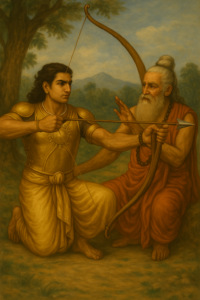
But he put all his doubts aside and gave his body, mind, and soul to his guru, who made him one of the most powerful warriors the world had known. The revered sage’s love for Karna was beyond his wildest dreams. Karna returned this love even more. The sage was the father he dreamed of having, a god-incarnate born to save the human world from injustice and adharma.
And yet, Karna knew he had a price to pay for that lie. He only hoped he could afford it when the time came to pay it.
Author’s Note:
While most of us are familiar with Karna and how Kunti abandoned him, this story of how he became a student of Sage Parashurama is not as popular. That he told a white lie to do this is also true, although the conversation between the two stalwarts is from my imagination. There is no specific discussion in the Mahabharata as to when his adopted parents tell him the truth. I chose to create this 16th birthday event for it.
Glossary:
Kavacha-kundala – armour and earrings
Sutputra – the son of a charioteer
Images created by Co-Pilot
This blog post is part of ‘Blogaberry Dazzle’
hosted by Cindy D’Silva and Noor Anand Chawla.

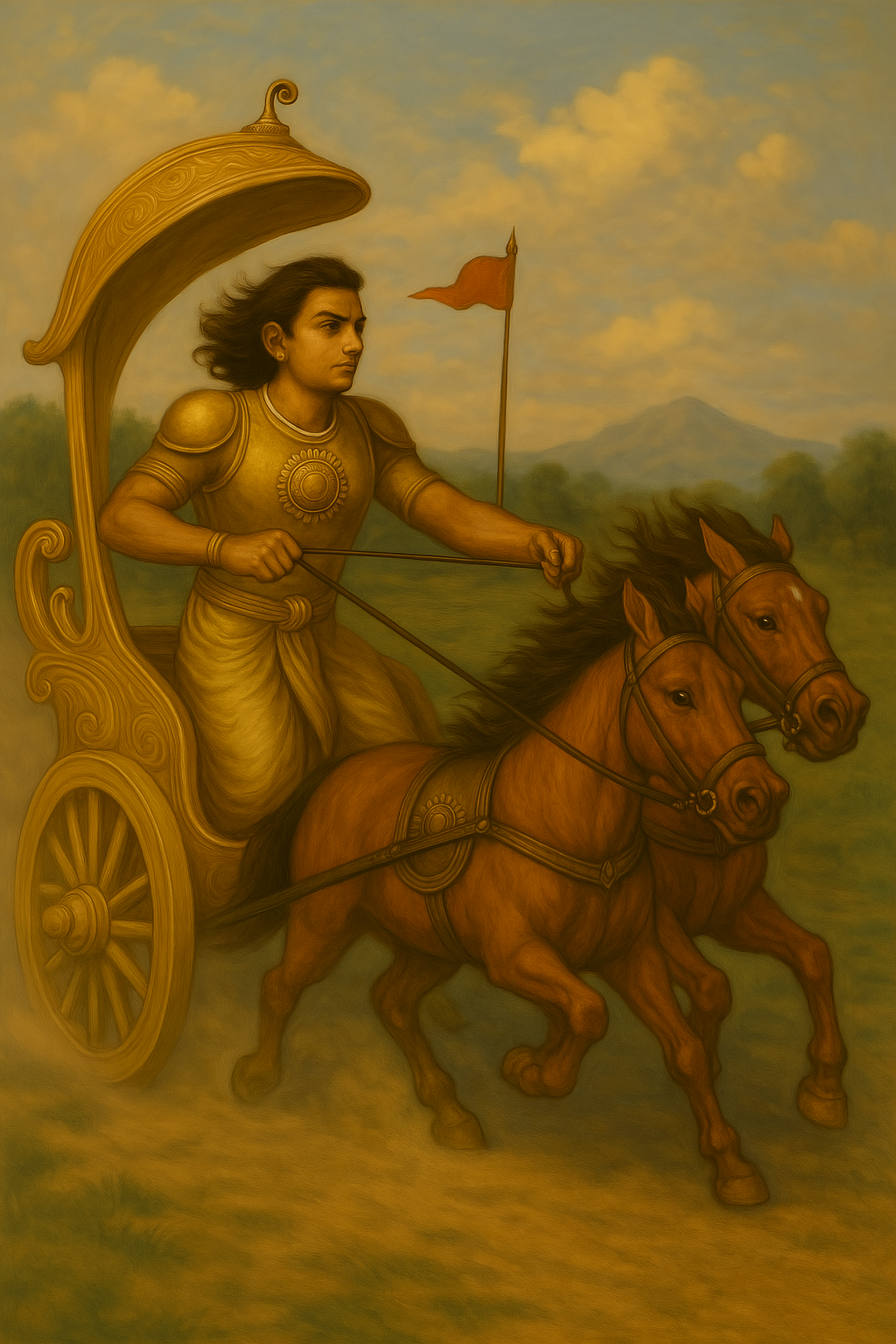

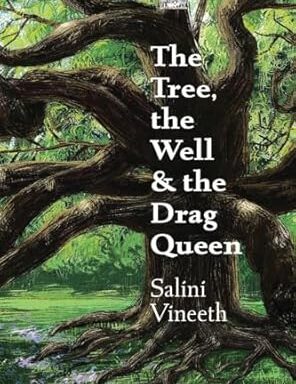
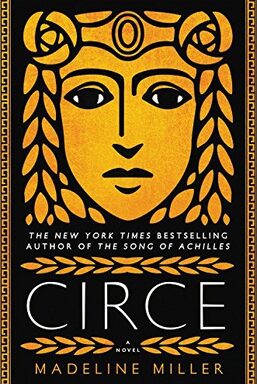
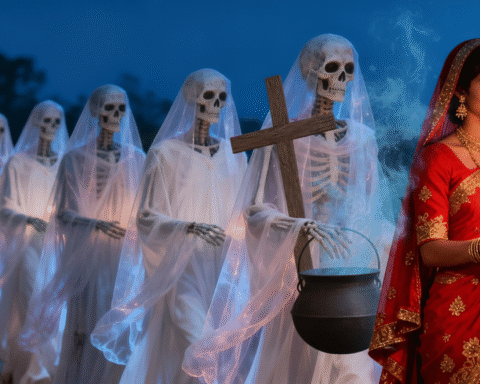

I really enjoyed this deep dive into Karna and Parashurama’s story, it captures that emotional tension so well. Personally, I love how you explore the layers behind Karna’s lie and the guru’s curse, it made me genuinely feel his inner conflict.
Excellent!! Your imagination is very interesting…
Enjoyed reading.. The truth of white lie!!
Keep going..
I didn’t know this story. And yes, sometimes, covering the truth does take you closer to your goal. Karna’s was the saddest story of the epic, the payment of a mother’s careless desire.
It is so beautifully written, didn’t want it to end. Hope you write the next part too about the curse! Would love to read it in your words.
Such a beautifully imagined and heartfelt telling of Karna’s journey, Ratna ma’am! I could feel every emotion, his confusion, longing, and the quiet strength he carries through it all. Loved how you brought out the tenderness in his bond with Radha and Adhiratha.
The you captured the feelings adopted kids get when they face the truth are sooo true and that phase is really hard to navigate. Further story is also good!
So beautifully crafted. Karna’s story is always inspiring, and yet breaks your heart every time you read it.
This is a completely new story from Mahabharata. Karna’s character is definitely one of a kind.
I was unaware of this story. Your retelling is making us re-read and re-think. So well written.
I really want to read more about Karna’s dilemma. I love the way you portrayed this whole mythology into something so powerful. I love your blogs and specially learning more about Mahabharata!
This retelling stirred something deep within me—Karna’s quiet resilience, his ache for identity, and his quest for dignity moved me. It’s a powerful reminder that truth and worth don’t always align.
You’ve shown so well what adopted kids go through when they learn the truth, it’s such a tough phase to deal with. Loved how gently you portrayed his bond with Radha and Adhiratha.
Good imagination, Ratna, to create a fictitious setup to bring out the actual story. Well thought of.
That Karna received his arms training from Parashurama was known to me but that he lied about being a Brahmin wasn’t.Your story telling dazzles me with not only the depth of knowledge about our mythology but also how you bring it all alive with the magic of your words.
What struck me most was the tension you highlight between Karna’s bold deception and his deep respect for Parashurama. His lie wasn’t born of malice but of aspiration; a powerful reminder that even heartfelt intentions can carry heavy consequences.
I find Karna’s life the most complicated in Mahabharat. He was so extremely talented, but fate betrayed him and he too sabotaged himself by listening to Duryodhan.
Your retelling of Karna’s moment with Parashurama, where his one “harmless” lie leads to a curse he can’t escape, is such a powerful reflection on how even small deceptions can shape our destiny. It’s a beautifully cautionary reminder: a truth withheld today might echo through our biggest trials tomorrow.
Oh, Karna did pay the price for lying, didn’t he? He was cursed and it cost him his life. Innocent lie to learn but one has to pay for whatever wrong they do.
Karna and Parashurama- what we can name this bond? This is one of the most significant and precious relation one can have in life when you get what you want from your guru. Mahabharata and Ramayana both have some flaws but also offers greatest lessons of life. A lie is as good as a truth when it is for the betterment or good for a person. But with time you have to pay for it and that what happened with Karna….. Loved your version of the imaginative conversation.
Such a thought‑provoking piece that brings out Karna’s human struggles beautifully, Ratna. The focus on how honor, deception, and deadlines of fate intersect—especially that poignant moment when Parashurama curses him to forget at his hour of need—gives the entire story real dramatic weight.
You bring our mythology alive time and again with your tales
Such a lovely retelling. I didn’t know about the part he learnt from parashuram.
Oh I didn’t know about this harmless lie! Now, I’m intrigued. What did he have to pay for this?
This made me reflect deeply—how often do we blur the lines between hiding truth and lying? Karna’s dilemma felt so human. Your insights opened up a whole new perspective for me.
Very interesting, especially because it’s the next step after the previous story you shared of Karna’s birth.
ಸರ್ ಪರಶುರಾಮರು ತ್ರಿಕಾಲ ಜ್ಞಾನಿಗಳು ಆದರೆ ಕರ್ಣ ಅವರಬಳಿ ಸುಳ್ಳು ಹೇಳುತ್ತಿದ್ದಾನೆ ಎಂಬುದು ತಿಳಿಯಲಿಲ್ಲವೇ
ದಯವಿಟ್ಟು ತಿಳಿಸಿ
Thank you for your comment, Venkatesh sir. I’m answering in English because my written Kannada is not so great. That Parasurama was a trikalagynani is more to do with wisdom rather than knowing everything about the past, present, and future. Therefore, his being lied to is not very difficult to understand, I think. Again, this is only my humble opinion, and I would love to hear your thoughts on it.